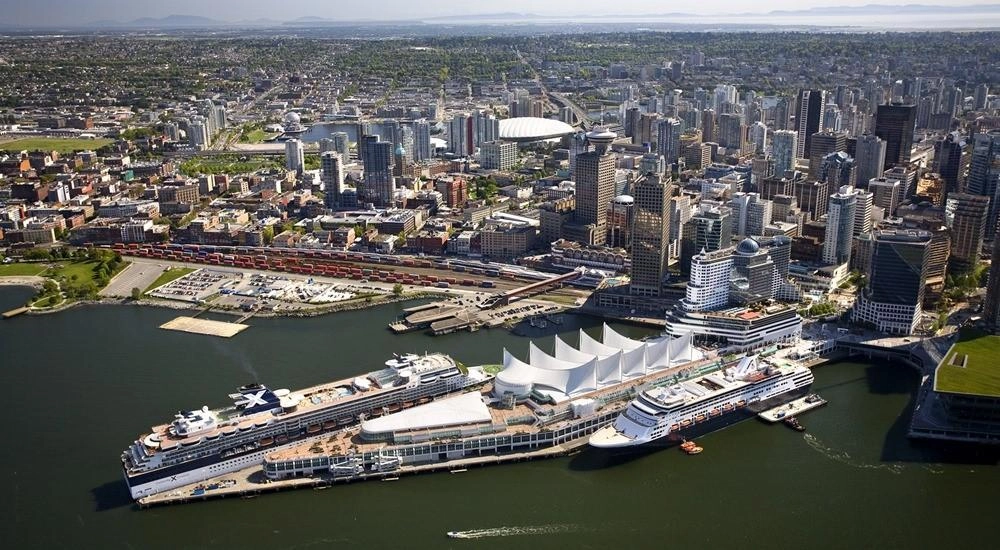
Milestone Achieved: First LNG Bunkering for Cruise Ships at Port Vancouver, BC Canada
The Port of Vancouver has achieved a remarkable milestone in maritime sustainability by successfully conducting its first liquefied natural gas (LNG) bunkering for a cruise ship. This operation was carried out by Seaspan Energy’s LNG bunkering tanker, Seaspan Garibaldi, which supplied the alternative fuel to a cruise vessel set to sail to Alaska. This pivotal moment marks the introduction of LNG refueling for deep-sea cruise ships at the port, reinforcing Vancouver’s commitment to lower-emission marine operations.
LNG is now recognized as the first alternative fuel widely available in the international shipping sector, approved for extensive bunkering at the Port of Vancouver. This initiative aligns with the ongoing efforts of the Vancouver Fraser Port Authority to reduce emissions and encourage sustainable practices among visiting vessels. Transitioning from conventional marine fuels like heavy fuel oil and marine diesel to LNG is crucial for meeting global decarbonization targets established by the International Maritime Organization, particularly the goal of achieving net-zero emissions by 2050.
While biofuels have been available in limited quantities at the port, LNG’s introduction represents a significant step forward as the first major alternative to diesel-based fuels on a large scale. This development is expected to pave the way for future adoption of next-generation fuels such as ammonia. Seaspan Energy, which obtained LNG bunkering accreditation from the port in late 2023, operates a fleet of three LNG bunkering vessels along the West Coast and has successfully conducted numerous refueling operations for various types of vessels in Vancouver.
The accreditation process included a thorough safety assessment by the port authority, employing international best practices and tailored planning. The smooth integration of LNG into the port’s fuel infrastructure underscores the authority’s dedication to safety and environmental responsibility, ensuring the safe handling of LNG-fueled vessels.
Vancouver’s cruise industry has been a central player in the region’s sustainability goals for over 30 years, particularly as a key homeport for cruises to Alaska. Cruise lines operating in Vancouver have adopted shore power solutions and participated in environmental initiatives like the ECHO Program, which aims to protect marine life by reducing vessel speeds in sensitive areas. In 2023, over 90% of cruise operators took part in ECHO, and more than 80% of cruise calls in 2024 are anticipated to connect to the port’s hydro-powered shore grid. The implementation of shore power since 2009 has resulted in the elimination of more than 45,000 tons of greenhouse gas emissions related to cruise activities at the port.
Recognized for its environmental leadership, Vancouver has awarded Blue Circle Awards to five cruise lines for their advancements in ecological performance. Looking ahead, the port is set to welcome 301 cruise calls in 2025, each contributing an estimated CA$3 million to the local economy, solidifying Vancouver’s role as a vital gateway for Alaska-bound voyages and a hub for sustainable maritime practices.
Set sail on a voyage of discovery with CruiseShip.net – your ultimate destination for all things cruising! Explore the latest news, insightful reviews, and thrilling cruising adventures from around the globe. Whether you’re a seasoned cruiser or a first-time traveler, CruiseShip.net is your go-to source for expert advice, insider tips, and inspiring stories to fuel your wanderlust. Embark on a journey like no other with CruiseShip.net – where every wave brings new excitement and endless possibilities on the high seas.
At CruiseShip.net, our editorial team is made up of passionate travelers, seasoned cruisers, and maritime industry enthusiasts who live and breathe life at sea. From the latest ship launches and destination spotlights to detailed reviews and onboard tips, we are dedicated to helping readers discover the joy of cruising.
Our mission is to make every article both inspiring and useful, whether you are planning your first voyage or your fiftieth. We research, fact-check, and collaborate with cruise insiders around the world to bring you accurate, up-to-date, and exciting coverage of the global cruise industry.
Join us as we chart new horizons, exploring one port, one ship, and one unforgettable experience at a time.



Leave a Reply